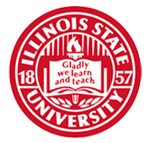Abstract
A hierarchical model using grounded theory analysis was used to investigate clinical development of speech-language pathology graduate students. Eight female students attending a graduate speech-language pathology program participated in interviews prior to beginning graduate training and after each of five subsequent semesters. The interviews were then qualitatively analyzed to create the model of clinical development. This is the first of two companion papers and summarizes two of the five main findings identified. These findings indicated that both stress and the coping strategies used by students influenced clinical abilities and the student’s feelings of self-efficacy throughout graduate training. The results support that learning theory, motivation theory, and understanding of student coping strategies could better promote clinical development and these factors in combination can be used to explain how students progress successfully through a graduate training program. The companion paper describes the remaining three findings that emphasize characteristics associated with the supervision and clinical experiences of graduate students.
Recommended Citation
Rapillard, S.,
Plexico, L. W.,
&
Plumb, A. M.
(2019).
Influence of Graduate Speech Language Pathology Student’s Learning Style and Coping Strategies on Training and Development.
Teaching and Learning in Communication Sciences & Disorders, 3(1).
DOI: https://doi.org/10.30707/TLCSD3.1Rapillard




